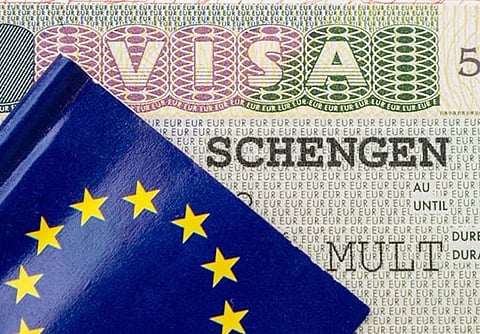Spain scraps golden visa: Why it ended — know the hot alternatives
Alternatives to know after Spain's Golden Visa programme was discontinued

Spain's Golden Visa has long been a gateway for non-EU citizens seeking European residency through economic contributions.
Launched in 2013 under Law 14/2013 to bolster the economy post-financial crisis, the programme allowed investors to obtain temporary residency by making significant investments in Spain.
The programme granted non-EU nationals residency rights in exchange for qualifying investments (such as €500,000 in real estate).
Property industry attract billions
Over the years, it attracted thousands of applicants, injecting billions into the real estate and business sectors.
However, the programme has been discontinued. This marks a pivotal shift in Spain's immigration policy.
As of the end of 2023, Spain had approved a total of 14,576 applications under its Golden Visa program (officially known as the Investor Residence Visa) since the program's launch in 2013.
This figure includes main applicants and does not account for family members included in those applications.
Approvals in 2024 toltaled approximately 936 through December, bringing the grand total to around 15,512 by the program's end, though official final government figures for 2024 are not yet fully confirmed in available sources.
This total is based on data from the Spanish government, as reported in an official press release cited by Condé Nast Traveler.
Implications
At its core, the Golden Visa targeted high-net-worth individuals from outside the European Union, offering a pathway to live, work, and study in Spain without a minimum stay requirement.
The initial permit was valid for one year, renewable for two-year periods, leading to permanent residency after five years and potential citizenship after ten years of legal residence.
Family members, including spouses, children under 18, and dependent parents, could also qualify.
Appeal
A key appeal was visa-free travel across the Schengen Area, comprising 27 European countries.
Investors only needed to visit Spain once per renewal period, making it ideal for those maintaining global lifestyles.
To qualify, applicants had to meet one of several investment thresholds. The most popular option was purchasing real estate worth at least €500,000, which accounted for over 90% of applications.
Alternatives
Alternatives included investing €1 million in Spanish company shares or bank deposits, €2 million in government bonds, or €1 million in innovative businesses or venture capital funds.
Investments had to be legal, verifiable, and maintained throughout the residency period.
Additional requirements included a clean criminal record, private health insurance, and proof of sufficient funds for living expenses.
Applications could be submitted from abroad via a Spanish consulate or within Spain on a tourist visa, typically taking 20-60 days for approval.The benefits extended beyond residency.
Holders gained access to Spain's world-class healthcare, education, and vibrant culture, while contributing to economic growth — the program generated over €1 billion annually.
Tax advantages were notable: non-residents (staying less than 183 days yearly) only paid on Spanish-sourced income, avoiding worldwide taxation. This flexibility appealed to entrepreneurs and retirees alike.
Why 'golden visa' was discontinued
Most golden visa holders used the real estate route (up to 95% of applicants), rather than investing in business creation or economically productive avenues.
Other key reasons: a rise in speculative investment and the housing shortage in Spain (about 600,000 units in 2025). It program was seen as a contributor to inequality and making city housing inaccessible to many local residents.
However, the programme faced mounting criticism for inflating housing prices in cities like Madrid and Barcelona, exacerbating affordability issues for locals.
In late 2024, amid housing crisis concerns, the Spanish Congress approved Organic Law 1/2025, published in the Official State Gazette on January 3, 2025.
This legislation repealed the relevant articles of Law 14/2013, effectively discontinuing the Golden Visa programme for all investment categories as of April 3, 2025.
The move, driven by Prime Minister Pedro Sánchez's coalition, aimed to prioritise housing as a right rather than a speculative asset. Applications submitted before the deadline were processed under old rules, but no new ones are accepted post-April 3.
Existing visa holders can renew and retain benefits, unaffected by the change.
Hot alternatives
The discontinuation has redirected investor interest to alternatives, including:
Portugal's Golden Visa (focusing on funds)
Greece's programme (€250,000+ in property), or
Spain's Non-Lucrative Visa for passive income earners.
For those eyeing Spain, the Digital Nomad Visa offers a one-year renewable permit for remote workers.
Takeaways
While the Golden Visa's end closes a lucrative chapter, it underscores Europe's evolving stance on investment migration amid social priorities.
(Note: This is not an endorsement of any programme or an investment advice. Prospective investors should consult immigration experts for personalised advice on viable paths forward.)







